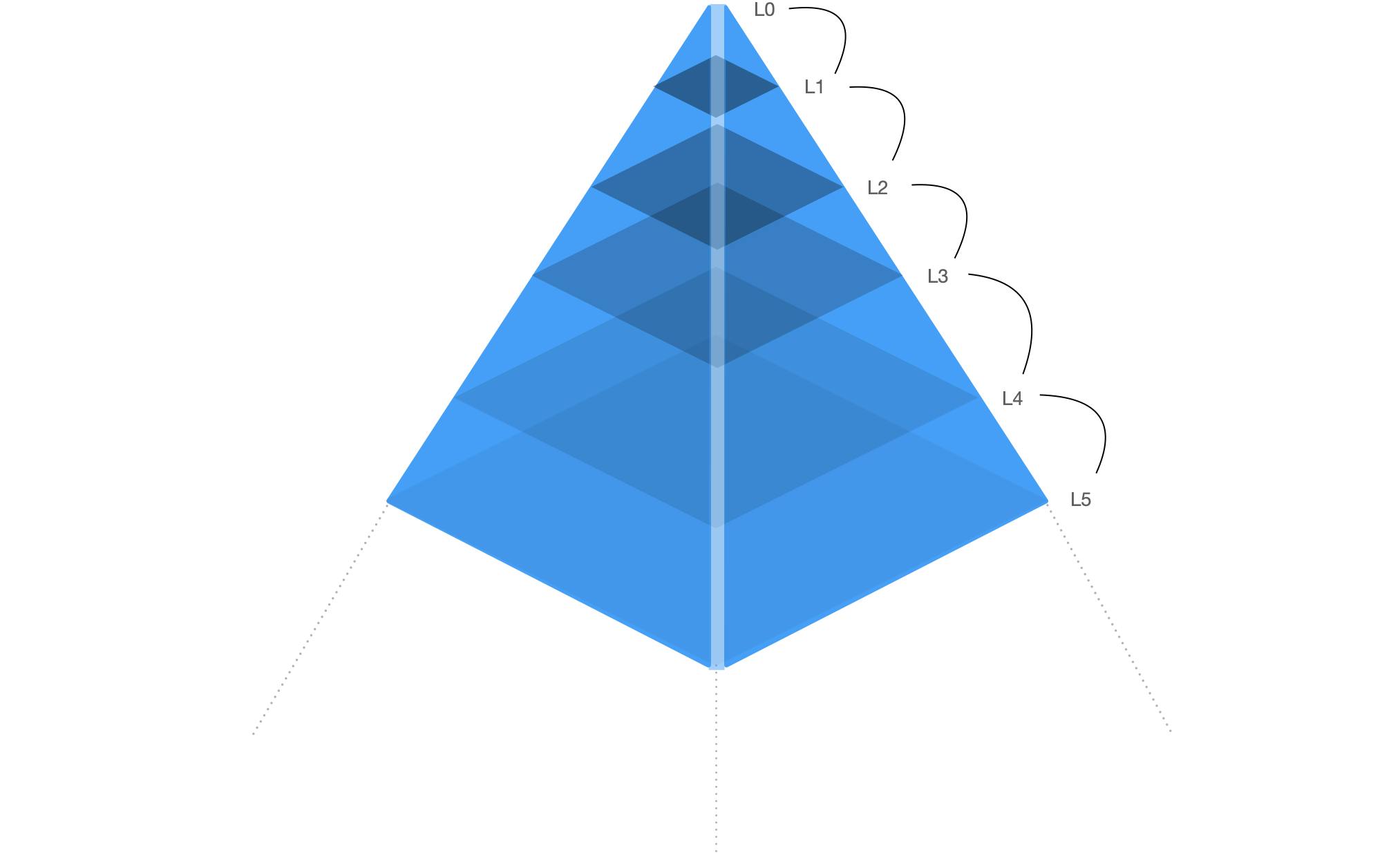
Photo by Jeremy Bishop on Unsplash
The Pyramid Analogy of Progress and Development
How to perceive studying and self-development as an endless and exciting journey
Table of contents
The Why
I've been delaying this blog post for a while now because:
it is not strictly related to software engineering which is my career field
it always felt as if I am writing about something that is out of my area
However, throughout this year I've shared the idea you are going to read about with a few friends and co-workers - to my surprise, all of them reacted positively and (I hope) one way or another it made their career journey easier. That's why I decided to finally put these thoughts in a blog post which can reach multiple people that might be struggling or getting discouraged or considering giving up on the goals and path they have chosen for themselves - be it a challenging career, a university degree in a complex field of study, an academic research project, etc. While the examples I give are mainly derived from my journey in software engineering, I have a strong feeling that people with different backgrounds will also share my opinion on this and find the analogy beneficial.
The What
We are going to explore what I like to call The Pyramid Analogy of Progress and Development or in short The Pyramid Analogy. Before we dive into it, let's start with a definition of the word analogy from the Cambridge dictionary [1]:
a comparison between things that have similar features, often used to help explain a principle or idea
This definition explains exactly what I will try to do in this post - I want to explain the idea of perceiving studying and self-development (in any field) as an endless endeavour by comparing it with an exploration journey of an infinite pyramid starting from the top with the goal to cover every inch inside the pyramid.
To explain the analogy, let's introduce a game with the following rules:
we have an infinitely high pyramid
our starting point is the top of the pyramid
the pyramid is broken down into layers which represent different levels of the game - the more layers we cover, the more we progress
we can only jump from one layer to the next when we have explored the entire surface of the current layer
Here is a diagram that visualizes the game:

The first thing we can notice is that as with many other games the more we progress, the more difficult it becomes to move to the next level. This is because each time we move deeper along the height of the pyramid, we get to a surface area that is larger than the one we have just covered. The second conclusion we can also immediately notice is that this is an infinite game - a game with no end. We can keep making progress by moving from one surface to the next, but because the pyramid is infinitely high, we can never reach the bottom surface. Yet, everyone that has played a similar game knows how addictive it is to keep levelling up and exploring new territories. In the beginning, making progress seems easy. At some point, we start struggling to pass to the next level. Do we feel discouraged when we fail multiple times? Obviously! Do we give up? Of course not! We just keep trying different ways until we succeed - we know we can succeed because otherwise, we wouldn't have been able to pass the previous levels of the game which in this case are the previous layers of the pyramid.
By now, I assume this analogy already sounds familiar. To me, this is exactly how it feels every time I put my focus on a particular goal. In the beginning, it seems easy, my motivation is high, and I think I can achieve the world. The more I progress, the harder it gets. I start feeling discouraged, I want to give up, impostor syndrome kicks in, and motivation is at its lowest levels. In these situations, what we usually fail to remember and understand is that the reason it feels harder is not that we are incompetent or lack the skills to move forward, but rather the fact that we have progressed so deep in the pyramid that the current layer we need to explore is bigger than anything we have seen so far. If we were playing the pyramid exploration game, what we would have done is find a different strategy to pass the new layer - in real life that would mean changing our studying strategy, changing the way we approach our tasks at work, trying out different hacks to be more focused and productive, practising our communication skills, reading more, etc.
Another critical rule of the game that we usually forget in real life is that we cannot skip layers - we can't just jump from layer 1 to layer 10. We need to cover the areas of layer 1, layer 2, layer 3 and so on until we finally reach layer 10. I assume this also sounds familiar to all of us. Frequently, we tend to forget that we cannot skip steps. You cannot just take up a new hobby and become a master of it without enduring the struggles of consistent practice. You cannot just start a new job and expect to learn everything from the company's domain within a month. You cannot demand a promotion without proving your worth. You cannot start a company and turn it into a unicorn startup [2] without putting in the hard work. All of these are real-life examples of our desires to skip layers in the pyramid game analogy.
Last but not least, another comparison we can draw from this analogy is the infinite nature of the pyramid game. Just as you can keep playing the game and moving from one layer to the next till infinity, the same is true when you start a new career or decide to explore a new area of study or commence anything related to your self-development. We have to remember - it is always an infinite game which gets harder as we progress. However, it is critical to acknowledge that just because the game doesn't end and there will always be something new to learn or to improve, it doesn't mean that we should not pursue the journey. Just the opposite, its infinite nature is what makes it so exciting and what keeps people engaged and helps them overcome the continuous struggle that's part of progressing in the pyramid. As many other (much more successful than me) people like to say - you have to fall in love with the journey rather than the destination. In my experience, the easiest way to achieve that mindset is to embrace The Pyramid Analogy.
The How
So how can all of this help you? It's all about changing the perspective we have on challenges encountered during our journey to success for a particular goal. First of all, let's face it, it's inevitable - at a certain point in time, we are all going to face problems, feel down and discouraged, and think of giving up. In these situations, it's easy to go into a spiral of negative thinking where a single negative thought triggers many more, and from there on the domino-effect kicks in. This is when The Pyramid Analogy has helped immensely in my personal life - it helped me redirect my mindset in the right direction.
Let me explain the thought process. The pyramid game showed us that the reason overcoming a particular layer turns out to be challenging is the fact that we have covered many other smaller layers before that. So applying this logic in real life, we wouldn't even be facing a particular challenge if we haven't faced and successfully overcome many others before that. So instead of letting our minds go into the spiral of negative thinking, we can re-focus on all the wins we've had in the past - yes, smaller in size in comparison to what we want to achieve right now, but at that time being the biggest win we could get. We can also embrace the fact that because we are covering a wider area in the pyramid right now, it is only logical we would need to put much more effort into it. Just as it is with other games, we search for different approaches to progress to the next level. The motivation and excitement come from the fact that we can keep progressing till infinity - there is always something new we need to learn or another challenge we have to face.
The Examples
To convince you that this is not just a big-words article, I'd like to also present a couple of examples from my personal life (there are plenty of other examples, but I do not want this post to be a this-was-my-life essay):
Studying in university - for every single subject I decided to put my focus on I could see a clear pyramid analogy; at first, everything seemed easy, but the more you progress, the harder it gets to grasp the new concepts and theories
Software engineering career - probably the most applicable example is my career development in software engineering at The IT Innovation Centre and Amazon. Not only did I need to acquire more skills to keep progressing in my career, but I also had to continuously learn more and more about the domain of the project I was working on at a given point in time. For both companies, I was experiencing the same pattern - with each new layer of domain knowledge I passed, I only realized how little I knew and that the new layer I had to cover was much wider.
In both examples, I could easily let myself drown in negativity, but instead, I chose to focus on what I did to reach the current level, and embrace that it's only natural for the current challenge to be more difficult - I was covering a larger surface area in the pyramid in comparison to what I have seen before.
The Conclusions
If we have to summarize The Pyramid Analogy, I would list the following key points:
Any long-term goals we have can be modelled as an infinite pyramid which needs to be covered in a top-down approach.
As we progress in the infinite pyramid, it is only natural that it's going to feel more challenging - the surface area at a given layer is larger than the areas covered in previous layers.
The journey never ends - we will always have a new surface to explore as we go along the height of the pyramid.
To use this analogy to our advantage, we have to remember that:
We would have never reached a given layer if we haven't successfully passed other layers before that.
To cover new layers of the pyramid we have to be flexible to changes and always adapt our approach to the current challenge - it's always something we haven't seen, therefore, we cannot expect previous approaches to just work like magic.
Each new layer is the key to much more exciting challenges and opportunities.
I sincerely hope that reading this article will to some extent help you continue your personal journey to success. I would also love to hear any comments you have about the idea presented in this post or examples of your own which resonate with The Pyramid Analogy.
The References
[1] https://dictionary.cambridge.org/dictionary/english/analogy
